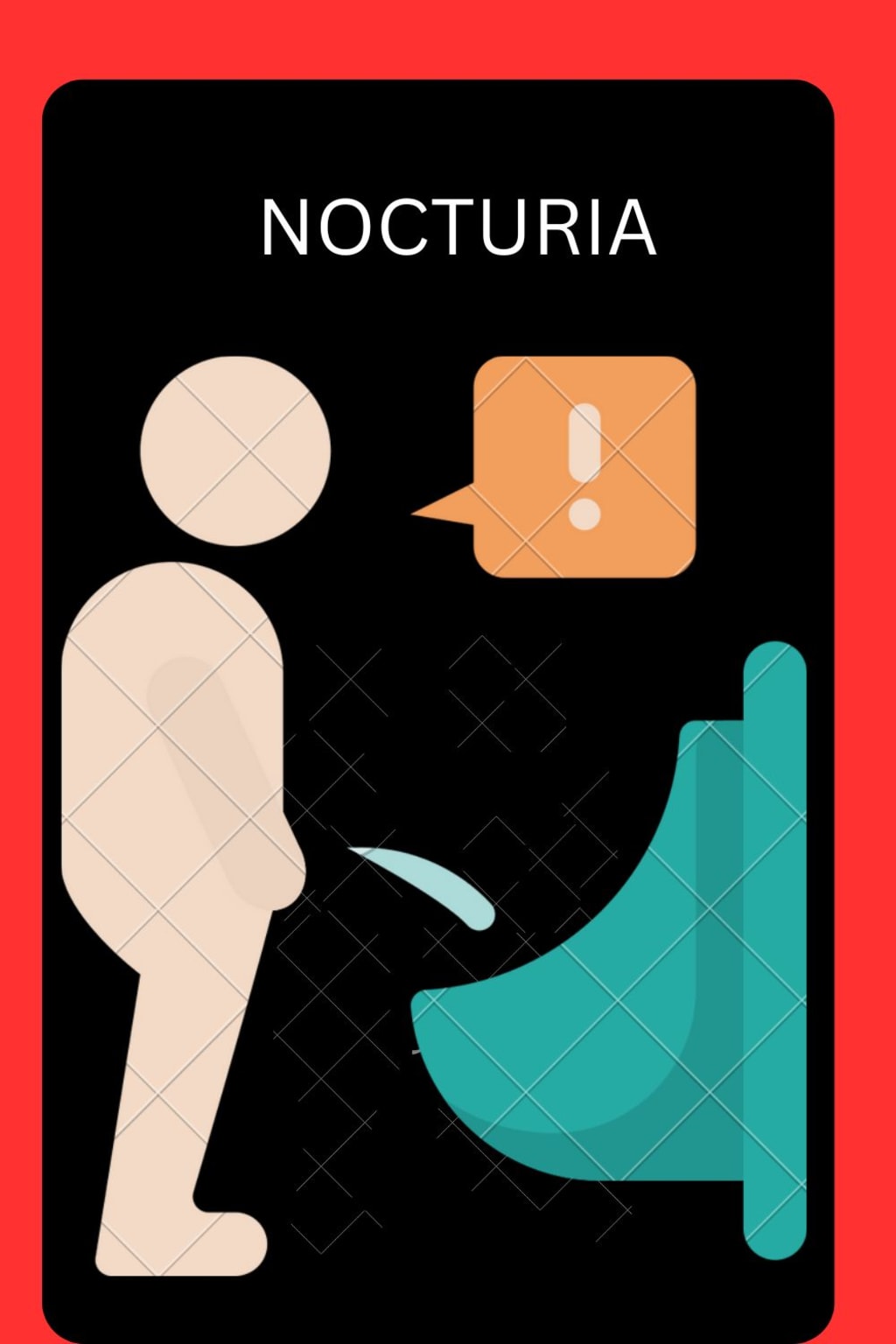Nocturia
Nighttime Urination: Understanding Nocturia" "Sleep Disruption: The Impact of Nocturia" "Nocturia Causes and Management" "Managing Nocturia: Tips for Better Sleep" "Nocturia Treatment Options and Strategies"

Nocturia is a medical condition characterized by the need to wake up one or more times during the night to urinate. It is a common problem, particularly among older adults, and can significantly impact sleep quality and overall well-being. Here's a comprehensive exploration of Nocturia:
Introduction to Nocturia
Nocturia refers to the condition where individuals experience frequent urination at night, disrupting their sleep patterns and often leading to daytime fatigue and reduced quality of life. While occasional nocturnal trips to the bathroom are normal, nocturia becomes a concern when it occurs regularly, affecting sleep continuity and overall health.
Causes of Nocturia
Several factors can contribute to nocturia:
1. **Age-related Changes:** As people age, the capacity of the bladder to hold urine decreases, leading to more frequent urination.
2. **Medical Conditions:** Underlying health issues such as diabetes, urinary tract infections (UTIs), kidney disease, prostate enlargement (in men), and neurological disorders can contribute to nocturia.
3. **Medications:** Certain medications, such as diuretics (water pills), used to treat conditions like high blood pressure or heart failure, can increase urine production and lead to nocturia.
4. **Lifestyle Factors:** Excessive fluid intake, especially before bedtime, consumption of caffeine or alcohol, and habits like smoking can exacerbate nocturia.
Impact of Nocturia
Nocturia can have various effects on individuals:
1. **Sleep Disruption:** Waking up multiple times at night to urinate disrupts the natural sleep cycle, leading to fragmented sleep and daytime sleepiness.
2. **Quality of Life:** Persistent nocturia can impair cognitive function, mood, and overall quality of life due to chronic sleep deprivation.
3. **Increased Fall Risk:** Getting up at night to urinate increases the risk of falls, especially in older adults.
4. **Social and Psychological Impact:** Nocturia can lead to embarrassment, social withdrawal, and anxiety about sleeping away from home or traveling.
Diagnosis
Diagnosing nocturia involves:
1. **Medical History:** Detailed assessment of urinary habits, medical conditions, medications, and lifestyle factors.
2. **Physical Examination:** Including a thorough evaluation of the urinary system and possibly a digital rectal exam (in men).
3. **Diagnostic Tests:** These may include urinalysis, urine culture (if UTI is suspected), blood tests to assess kidney function, and bladder function tests (urodynamic studies).
Treatment and Management
Management of nocturia depends on identifying and addressing underlying causes:
1. **Lifestyle Modifications:** Adjusting fluid intake, reducing caffeine and alcohol consumption, and maintaining a regular sleep schedule.
2. **Medications:** Depending on the cause, medications may be prescribed to reduce urine production, treat infections, or relieve symptoms of an enlarged prostate.
3. **Behavioral Therapies:** Techniques such as bladder training, where individuals gradually extend the time between urinations, can help improve bladder control.
4. **Surgical Interventions:** In cases of severe benign prostatic hyperplasia (BPH) or other structural issues causing nocturia, surgical procedures may be considered.
5. **Alternative Therapies:** Some individuals find relief from nocturia through acupuncture, pelvic floor exercises, or use of absorbent pads at night.
Prevention
Preventing or managing nocturia involves:
1. **Maintaining Good Hygiene:** Practicing good hygiene habits to reduce the risk of UTIs and other infections.
2. **Regular Medical Check-ups:** Monitoring and managing chronic conditions that contribute to nocturia, such as diabetes and hypertension.
3. **Healthy Lifestyle:** Adopting a balanced diet, regular exercise routine, and adequate hydration practices.
4. **Sleep Hygiene:** Establishing a consistent sleep schedule and optimizing sleep environment to promote uninterrupted sleep.
Conclusion
Nocturia is a prevalent condition that can significantly impact individuals' sleep quality, overall health, and quality of life. Effective management involves identifying and addressing underlying causes through a combination of lifestyle modifications, medications, and behavioral therapies. By understanding the factors contributing to nocturia and implementing appropriate treatment strategies, individuals can experience improved sleep patterns and better overall well-being.
About the Creator
Enjoyed the story? Support the Creator.
Subscribe for free to receive all their stories in your feed. You could also pledge your support or give them a one-off tip, letting them know you appreciate their work.






Comments
There are no comments for this story
Be the first to respond and start the conversation.